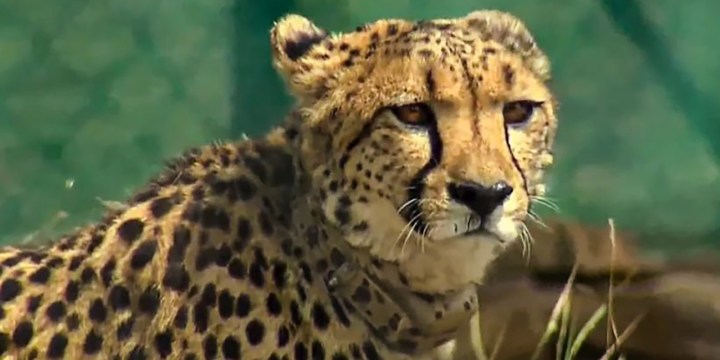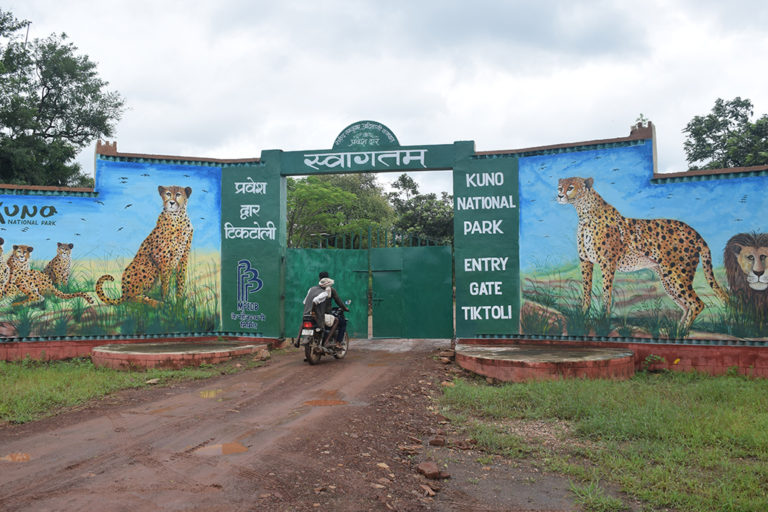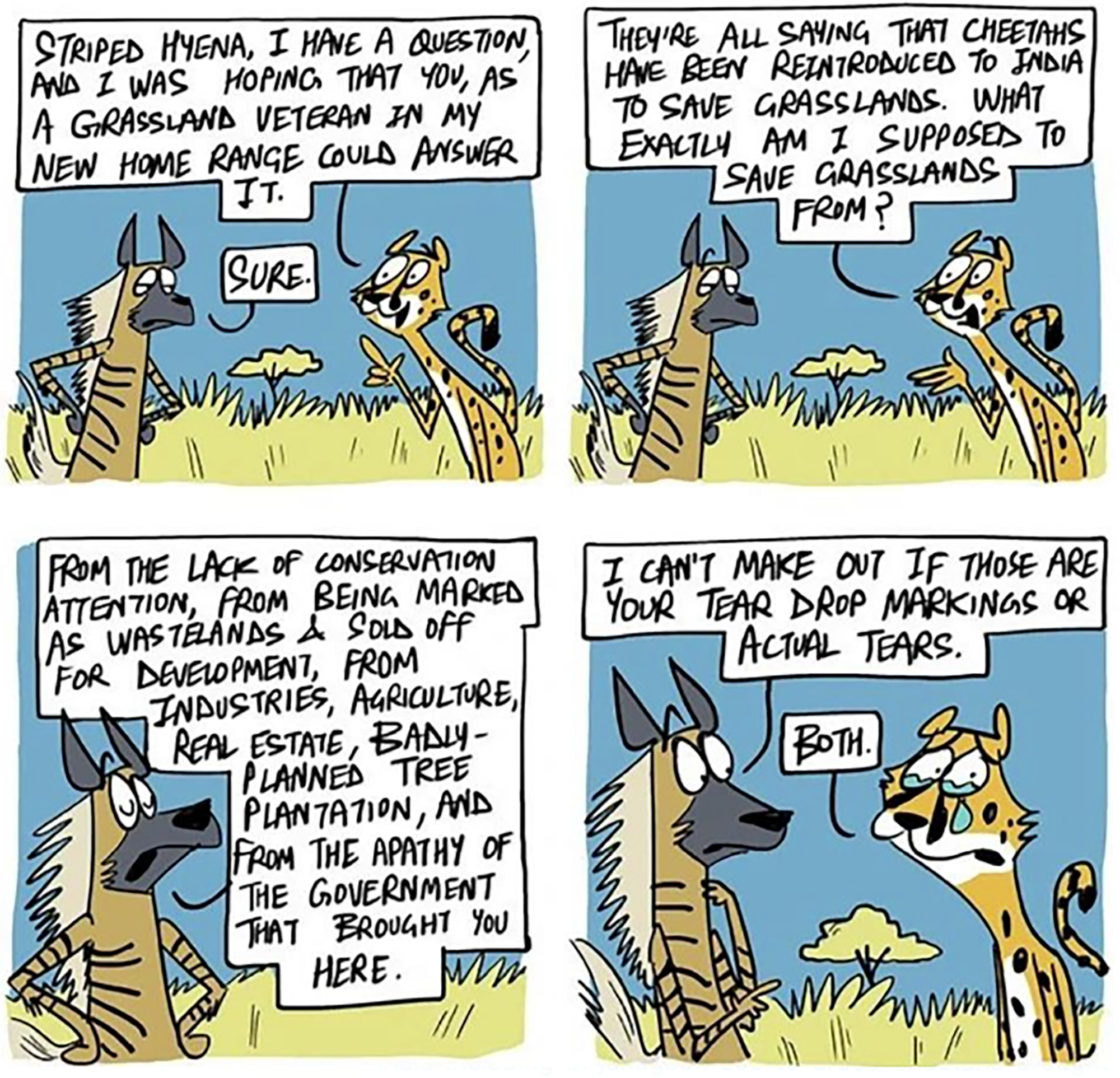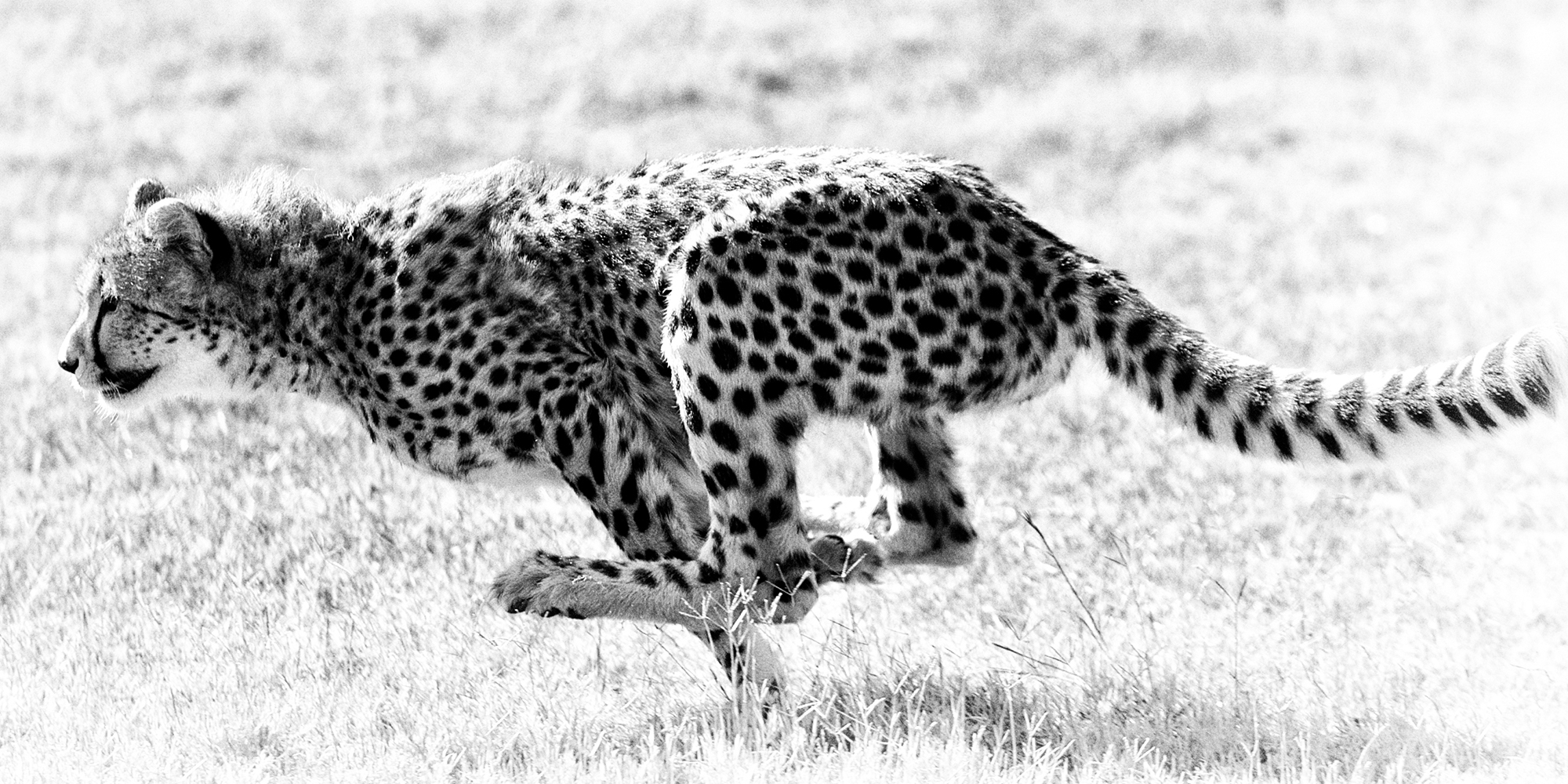DEAD SPEEDCATS
Relocation of African cheetahs to India questioned as 6 reported dead within six months

‘Stop the experiment,’ Indian MP urges as exported African cheetahs continue to die in Kuno National Park.
Within six months of arriving from Namibia and South Africa, a quarter of the cheetahs imported to India as a ‘birthday event’ for Prime Minister Narendra Modi, are dead. Among the four released into Kuno National Park in Madhya Pradesh, some bolted into farmlands and had to be tranquilised and brought back.
Citing the deaths, the space required for cheetahs and India’s land constraints, Indian Member of Parliament and member of a parliamentary panel on the environment, Agatha Sangma, has urged the Environment Ministry to reconsider the cheetah introduction project.
India imported eight of the cats from Namibia last September and brought 12 more from South Africa in February this year. Three adults and three of four cubs born in Kuno in March this year have died.
Read more in Daily Maverick: Cheetahs cleared for take-off after South Africa-India ‘extinction reversal’ agreement
“These unfortunate incidents highlight the pressing need for immediate action to rectify the current situation and reconsider the African cheetah translocation project in India,” Sangma wrote in a letter to Environment Minister Bhupender Yadav.
She said the cheetahs appeared to have suffered because of “inadequate adaptation measures and inadequate veterinary care.”
“The reintroduction of a foreign species, (even) one as iconic as the cheetah, should not take precedence over the conservation of our native wildlife and their habitat,” she said. She questioned Kuno’s capacity to absorb large populations of cheetahs in the wild, arguing that attempts to introduce them into India would pose “an insurmountable challenge.”

Indian Member of Parliament and member of a parliamentary panel on the environment, Agatha Sangma. (Photo: Supplied)
Since the beginning of the project, wildlife scientists have questioned the project, claiming India had rushed to bring cheetahs into India without adequate preparations and disregarding cheetahs’ need for large open landscapes which they say the country lacks.
In an interview with the UK Guardian, Professor Sarah Durant of the Zoological Society of London said it was clear that things are not going well.
Read more in Daily Maverick: Running for their lives – last-minute bid to stop cheetah export to India
“The programme seems rushed. Any country that re-introduces a large carnivore deserves to be applauded,” she said. “However, there does seem to be an excessive number of losses at Kuno and they seem to be happening in circumstances in which I would not expect there to be losses like these. So I think there needs to be a rethink of how they’re managing Cheetah Project and a halt to future re-introductions for the moment.”
The cause of the deaths of three wild-caught adults were ascribed to heart failure and kidney failure. Three of the four cubs born in India also died. According to wildlife experts, these deaths point to high levels of stress during months in captivity.
Vincent van der Merwe who was involved in capturing the cheetahs in South Africa, told the Hindustan Times that stress from being cooped up in enclosures for too long was a probable factor in the deaths. He said that after 10 months in captivity, the animal had lost fitness and suffered from chronic stress. “The animals must go back into the wild where they belong” and are “unhappy in cages”, he said.

Entrance gate of Kuno Palpur National Park, Manish Chandra Mishra, Mongabay. (Photo: Supplied)
Read more in Daily Maverick: Translocation of SA cheetahs to India — ‘there is going to be a lot of heartache and pain’
There is, however, a problem with what India considers ‘wild’. The four cheetahs — three males and a female — first released into the park are wandering further than expected. A male and female were soon sighted on the borders of Kuno. In early April, a cheetah was spotted in a village around 20 kilometres outside the park’s borders.
On April 22 a cheetah named Pavan had to be tranquilised near the border of the adjoining state of Uttar Pradesh and brought back to Kuno. He crossed grasslands, agricultural fields and villages reaching almost as far as Jhansi on the Uttar Pradesh border. That’s almost 100km from Kuno.
At 740km2, there has been concern that Kuno is too small for the number of cheetahs planned to be released there, given the wide range required by them.
Cheetah density in the Serengeti plains of Tanzania — considered perfect cheetah habitat — was found to be seldom more than five per 100 km2, with male territories higher at around 150 km2. This was also the case in Kenya’s Masai Mara.
In a letter in the Society for Conservation Biology, a team led by Bettina Wachter of Germany’s Leibniz Institute for Zoo and Wildlife Research, wrote that the introduction of cheetahs to India “was planned without considering their spatial ecology”.
The team’s prediction, based on extensive research, is that each male released into Kuno will establish a territory separated by between 20 and 30 kilometres. Kuno is only 17×44 kilometres in size, so this will not leave space for the additional males.
“We, therefore, predict that eight cheetahs will conduct extensive excursions outside (Kuno) during their exploration phase, potentially coming into conflict with livestock farmers.” The females will also have to establish territories, “thus we predict that females will also move out of KNP and coming into conflict with livestock farmers.”

India News cartoon. (Image: Supplied)
There are other dangers. According to Ravi Chellam, a wildlife biologist in Bangalore and coordinator of the Biodiversity Collaborative, “we expect greater mortality in the wild — from leopards or feral dogs or from injuries that happen while the cheetahs are moving across landscapes.”
He has argued that the project has disregarded the large open-land requirements for cheetahs and the lack of sufficient land in India.
A report in The Wire, an Indian online news service, said the Madhya Pradesh forest department had written to the National Tiger Conservation Authority (NTCA) to look for ‘alternate’ sites, saying Kuno could not accommodate more than 10 cheetahs, citing both space and logistical issues.
The Cheetah Action Plan for the cheetah relocation released by the Indian government in January 2022, however, says the project factored in that that a certain number of cheetahs would die.

A general view of a cheetah. (Photo: Don Pinnock)
Read more in Daily Maverick: Twelve Southern African speed cats travel 9,000km to bring extinct cheetahs back to life in India
“Not all deaths after release should be a cause of worry,” it reads. “Mortality of reintroduced cheetah is expected in spite of all the efforts taken to minimise risks. Appropriate publicity needs to be done prior to the commencement of the project, so that all the stakeholders, public and officials are aware of this eventuality and it should not put the project in bad light or consider it a failure due to cheetah deaths.”
With a quarter of the cheetahs now dead while in captivity and insufficient space to release them, however, the Cheetah Project finds itself between a rock and a hard place. The assurances in the government’s Action Plan seem to be wearing ever thinner. DM
To read all about Daily Maverick’s recent The Gathering: Earth Edition, click here.




















Comments - Please login in order to comment.